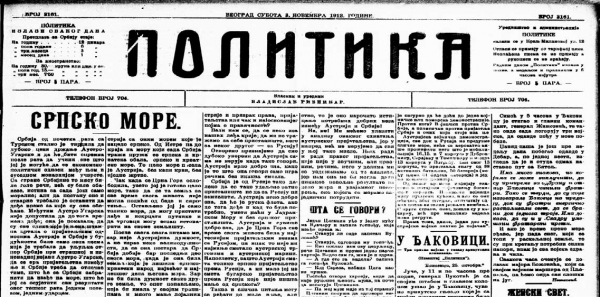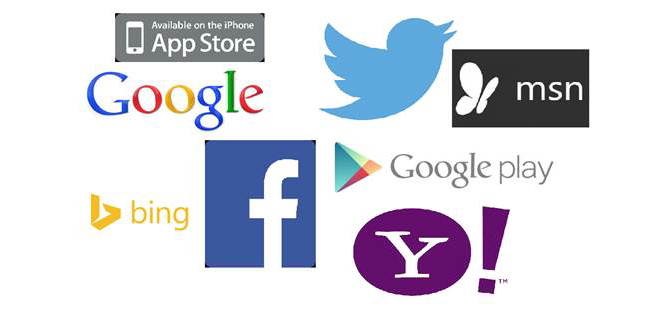 Having examined reports from numerous countries at various stages of completing the switch from analogue to digital terrestrial broadcasting produced by the Open Society Foundation’s Mapping Digital Media Project, Christian S. Nissen of the Copenhagen Business School and former CEO of the Danish Broadcasting Corporation argues that civil society in most countries is not seeing the benefits that could potentially be gained in terms of media pluralism.
Having examined reports from numerous countries at various stages of completing the switch from analogue to digital terrestrial broadcasting produced by the Open Society Foundation’s Mapping Digital Media Project, Christian S. Nissen of the Copenhagen Business School and former CEO of the Danish Broadcasting Corporation argues that civil society in most countries is not seeing the benefits that could potentially be gained in terms of media pluralism.
The shift from analog to digital technology in the terrestrial transmission of radio and television signals is more than a technological development. By switching from analogue to digital existing broadcasters require less spectrum, thereby freeing up some spectrum, which is referred to as the “digital dividend”. Because terrestrial spectrum capacity is a limited resource that can be put to a variety of uses (e.g. radio, television and different forms of mobile communication), the shift entails a number of economic, commercial, and cultural-political elements of great societal importance. Among the gains expected from the shift to digital transmission and use of the digital dividend, are:
- more television channels, enhancing media plurality;
- more competition in the television distribution market by providing spectrum to new operators;
- expanded broadband wireless services;
- increased competition and services in mobile telephony.
As part of the Mapping Digital Media (MDM) project, I made a cross-country examination of the actual and planned use of the digital dividend in the countries covered by the MDM project. It revealed that in most of these countries’ gains in the first two areas were not materializing. Looking at countries where the transition to DTT has been completed and those where it is still underway, I saw a discouraging picture in terms of the implications for media pluralism.
Little evidence of a more diversified television offer
According to the plans of the International Telecommunication Union (ITU), confirmed by the findings of the MDM project, the present frequency planning of most countries – as well as countries where the switch to digital has been completed – seems to make room for a dramatic rise in the number of television channels. Previous concerns about terrestrial television being squeezed have apparently so far been groundless. Nevertheless, only in a few countries has the switch to DTT resulted in a more diversified television offer.
The MDM reports present a rather clear pattern. In countries where terrestrial distribution accounts for a large share of television reception, DTT has brought about a considerable expansion of the channels offered for terrestrial-only households. However, many of these new channels will only support the overall content diversity marginally, as most of them are—or will be – channels already provided by cable and satellite. DTT only allows those existing channels to reach terrestrial only households, rather than encourage the launch of new channels. Expectations for the countries still in a planning phase are the same. Only a few countries, mostly those with strong public service media, have made the public interest in channel diversity an element of their licensing policy.
Non-transparent, politicized allocation of new frequencies – little new competition
This rather pessimistic perspective also applies to how the new digital television spectrum is being divided among potential operators. With a few exceptions in North West Europe, Japan and the U.S., most countries have conducted the processes of frequency licensing in a non-transparent and much politicized way.
The MDM reports show that digital frequencies are often given to well-established incumbent actors with close ties to specific political and economic interests setting aside the interests of the public and arguments of civil society. The prospects for the countries still preparing to tender are no better.
Legal frameworks and rules are not sufficient
The overall picture revealed by the MDM reports is rather disturbing. Most countries that have switched to DTT, or are in the course of doing so, have established some kind of legal framework regulating the process. This framework usually includes rules aimed at securing an open and fair process. In very few countries, however, are these rules followed in practice.
A consistent regulatory framework for digital switchover is certainly a necessary condition for securing transmission efficiency, fairness for the parties involved, the societal interests of the public, and transparency in the process. However, this is not a sufficient condition. A political-administrative culture characterized by accountable government institutions and public confidence in political authorities seem to be just as, if not more, important.
What can be done to serve the public interest?
Not much, to state it frankly. Protecting the public interest and advancing media pluralism in countries without accountable government institutions is not easy – neither in day-to-day media politics nor when it comes to switching from analogue to digital television. From the civil society perspective, the most important thing will probably be an effort to promote transparency and fairness in licensing rounds. Here the local civil society groups will need support from international institutions and non-governmental international organizations able to create international awareness and to put pressure on the local authorities.
This article gives the views of the author, and does not represent the position of the LSE Media Policy Project blog, nor of the London School of Economics.




